YYYYMMDD >>> BACK HOME <<< >>> SELECTED FEATURES <<< >>> HIDDEN ARCHIVE <<<
[20220622]
PARDON OUR DUST by LA TURBO AVEDON at MAK – MUSEUM OF APPLIED ARTS curated by MARLIES WIRTH [from 20220622 to 20220925]
[Photos: kunst-dokumentation.com / Stills: La Turbo Avedon]


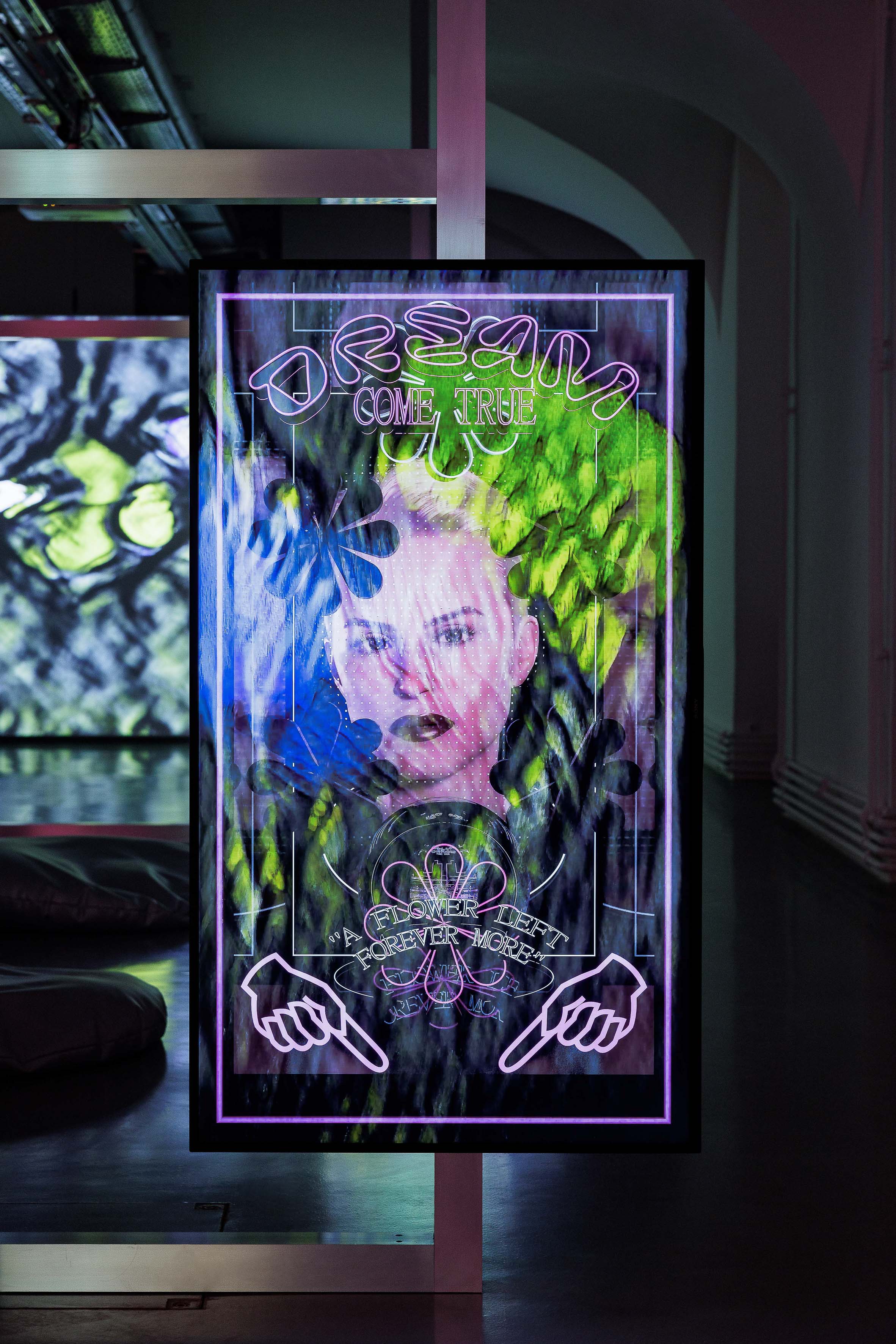
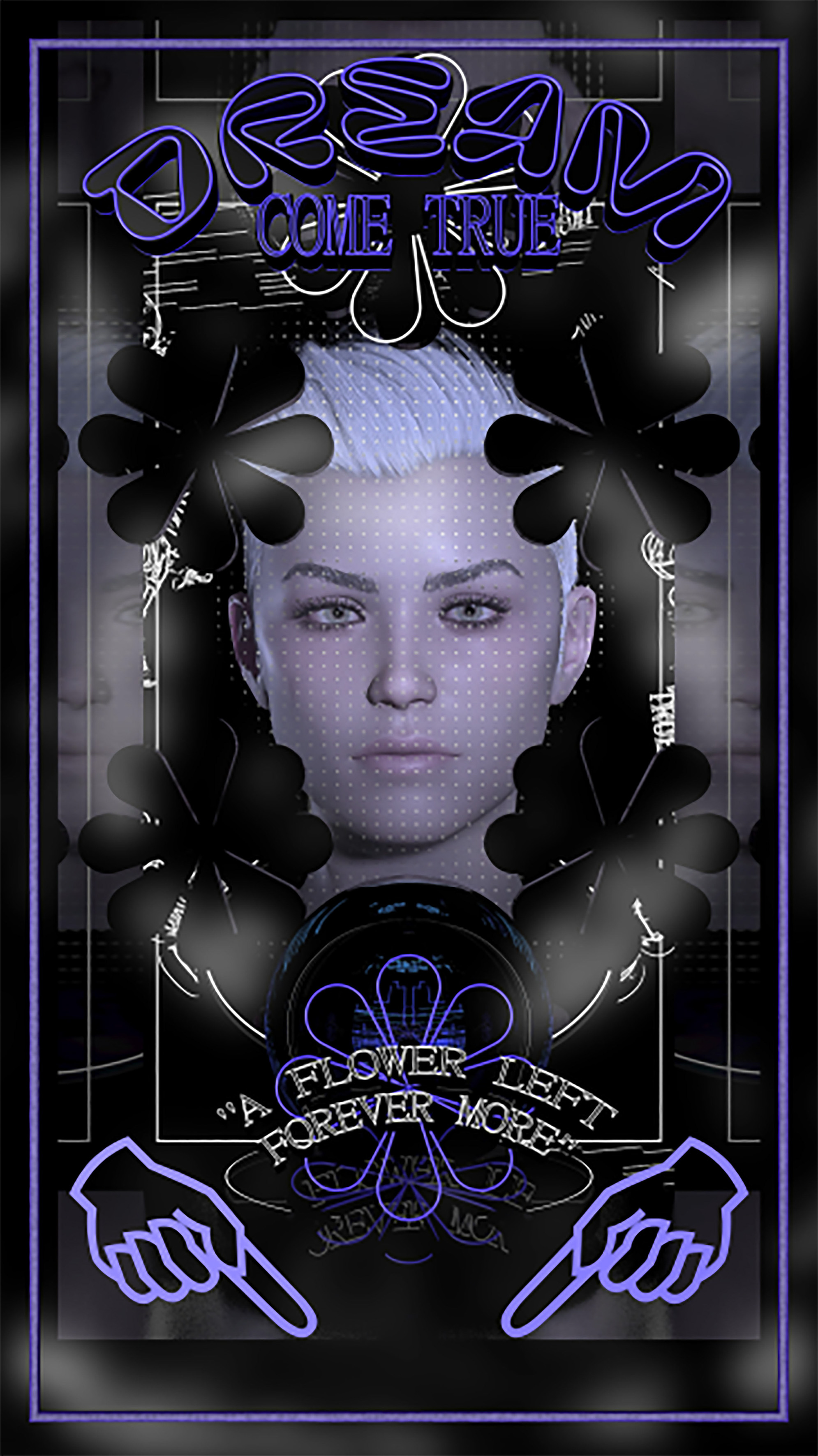
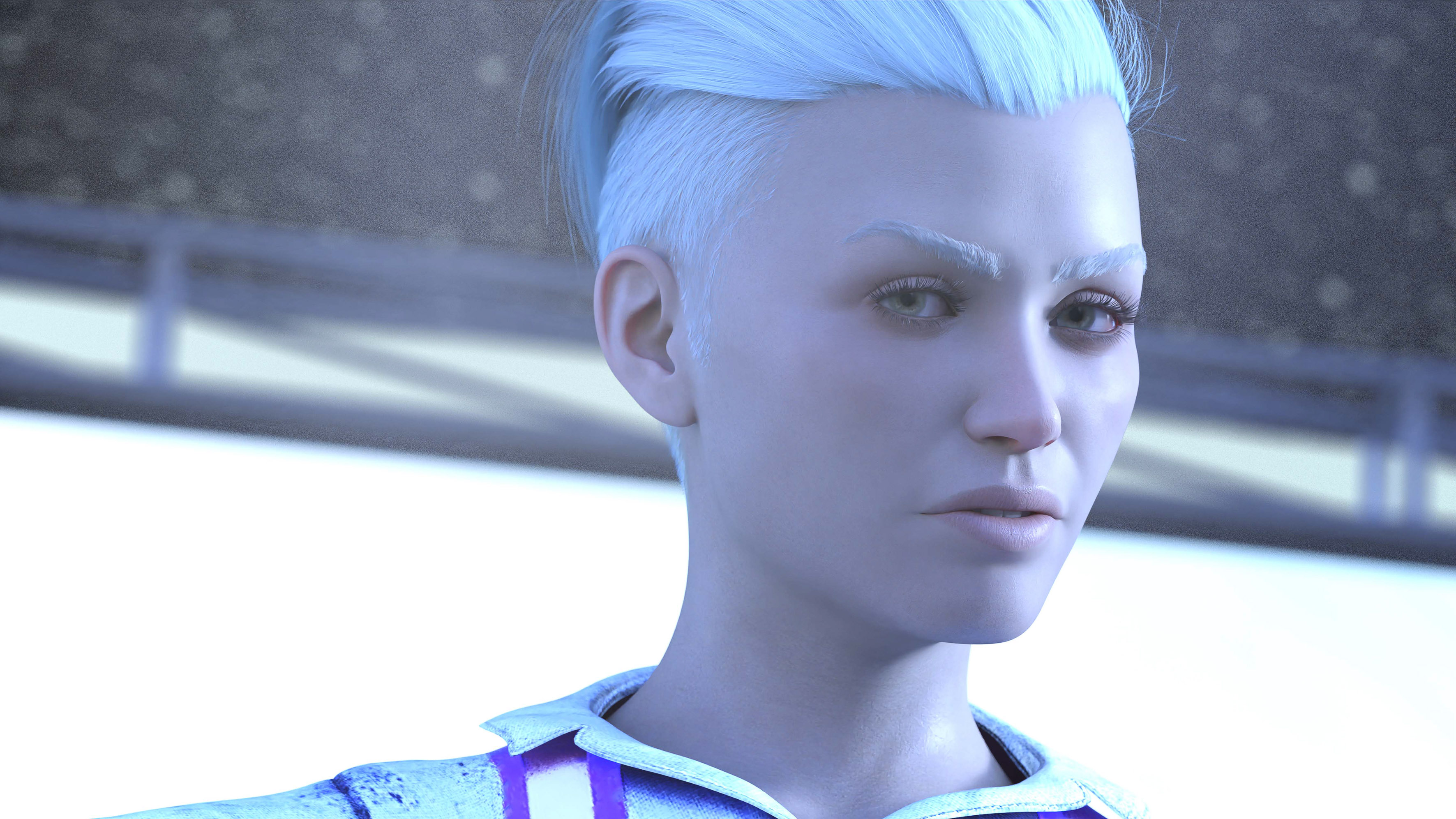
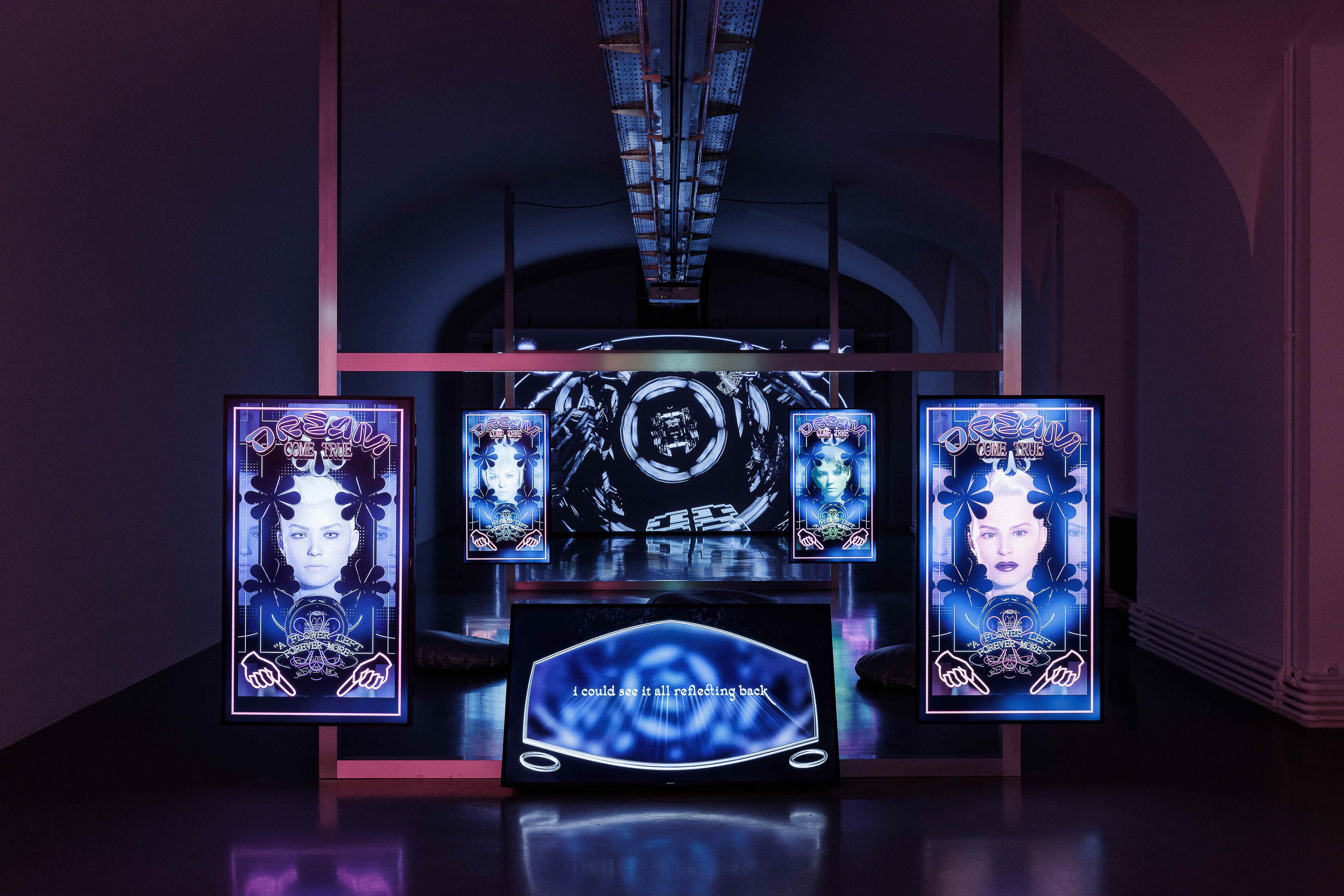

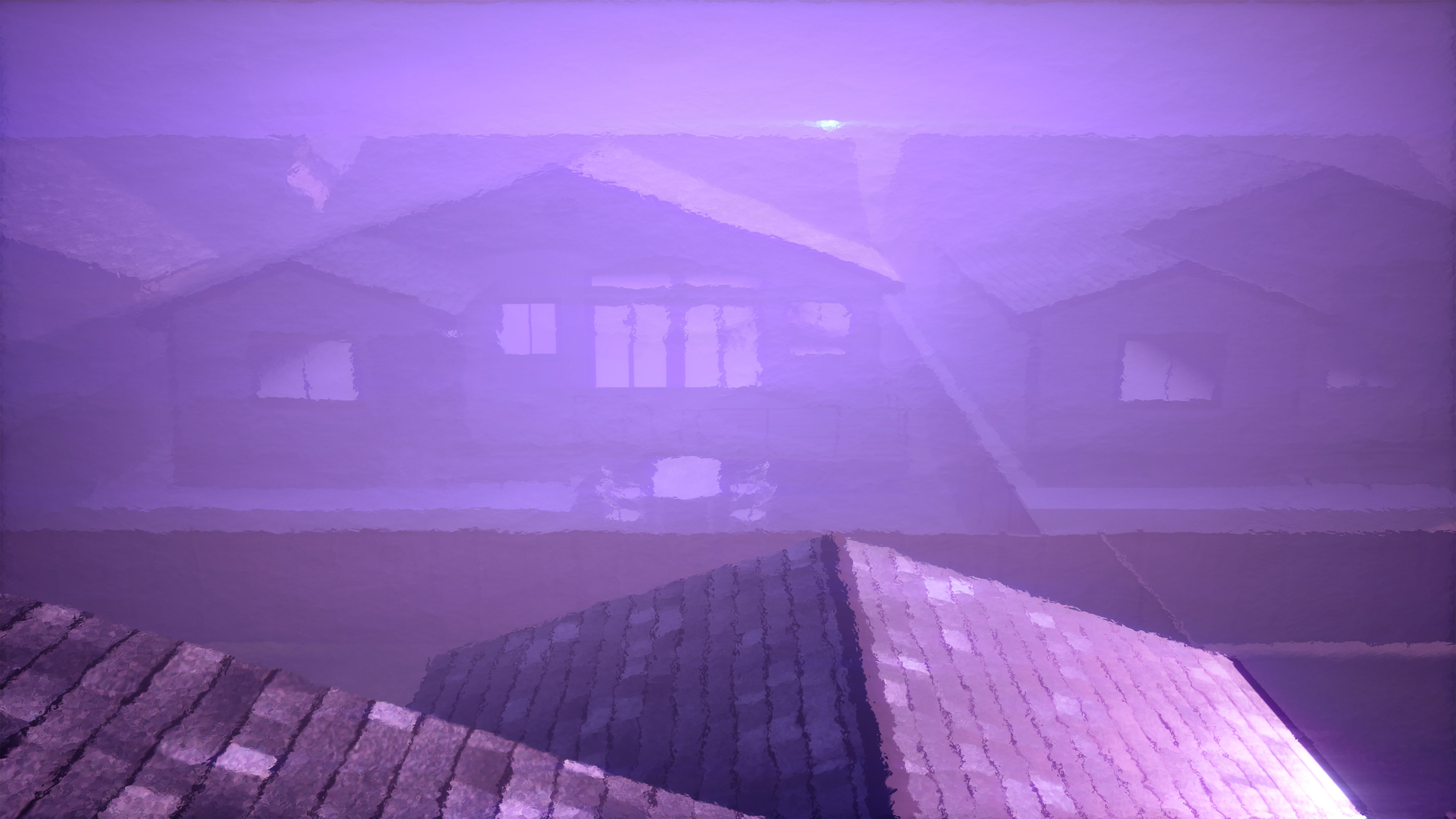

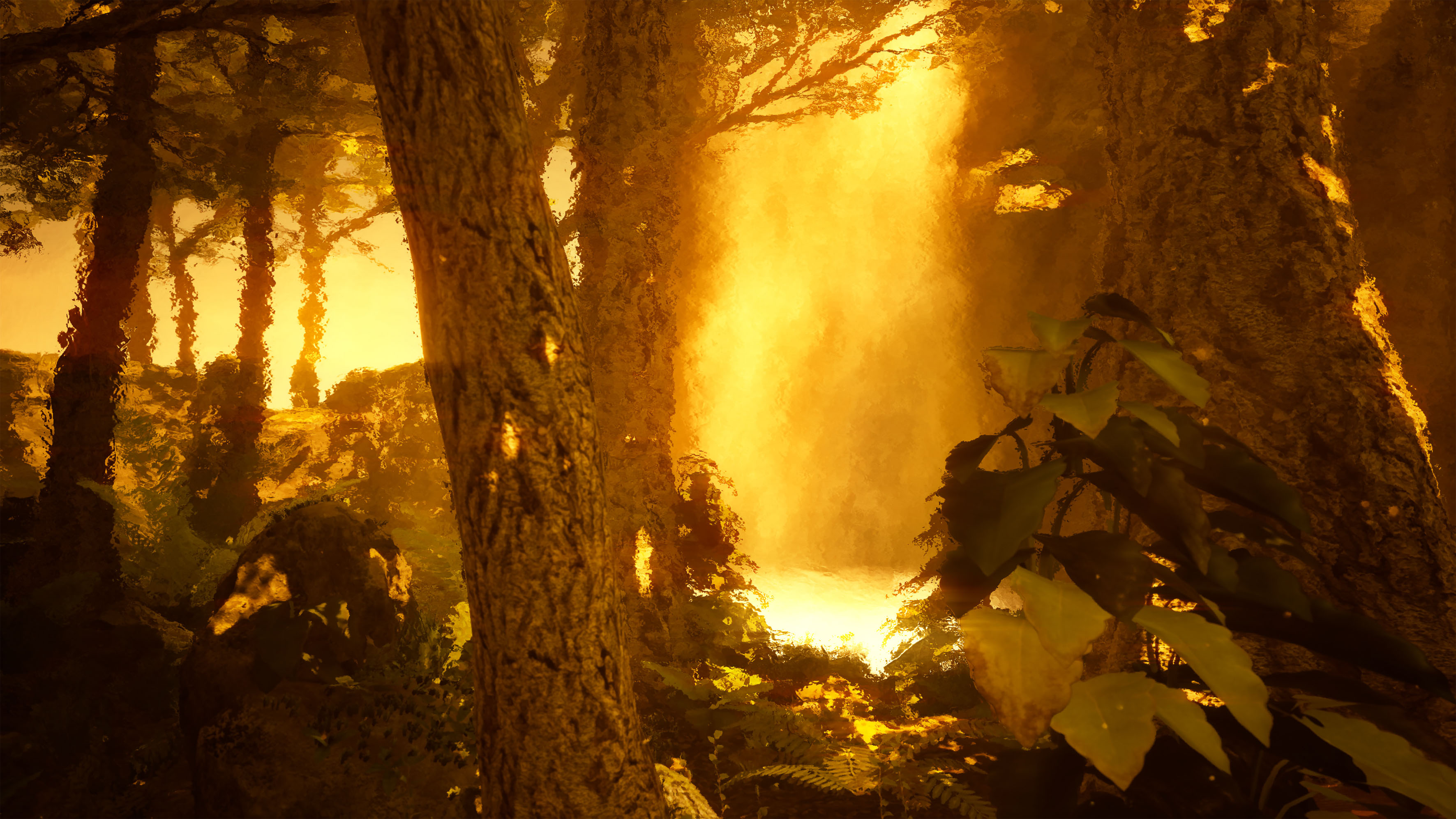



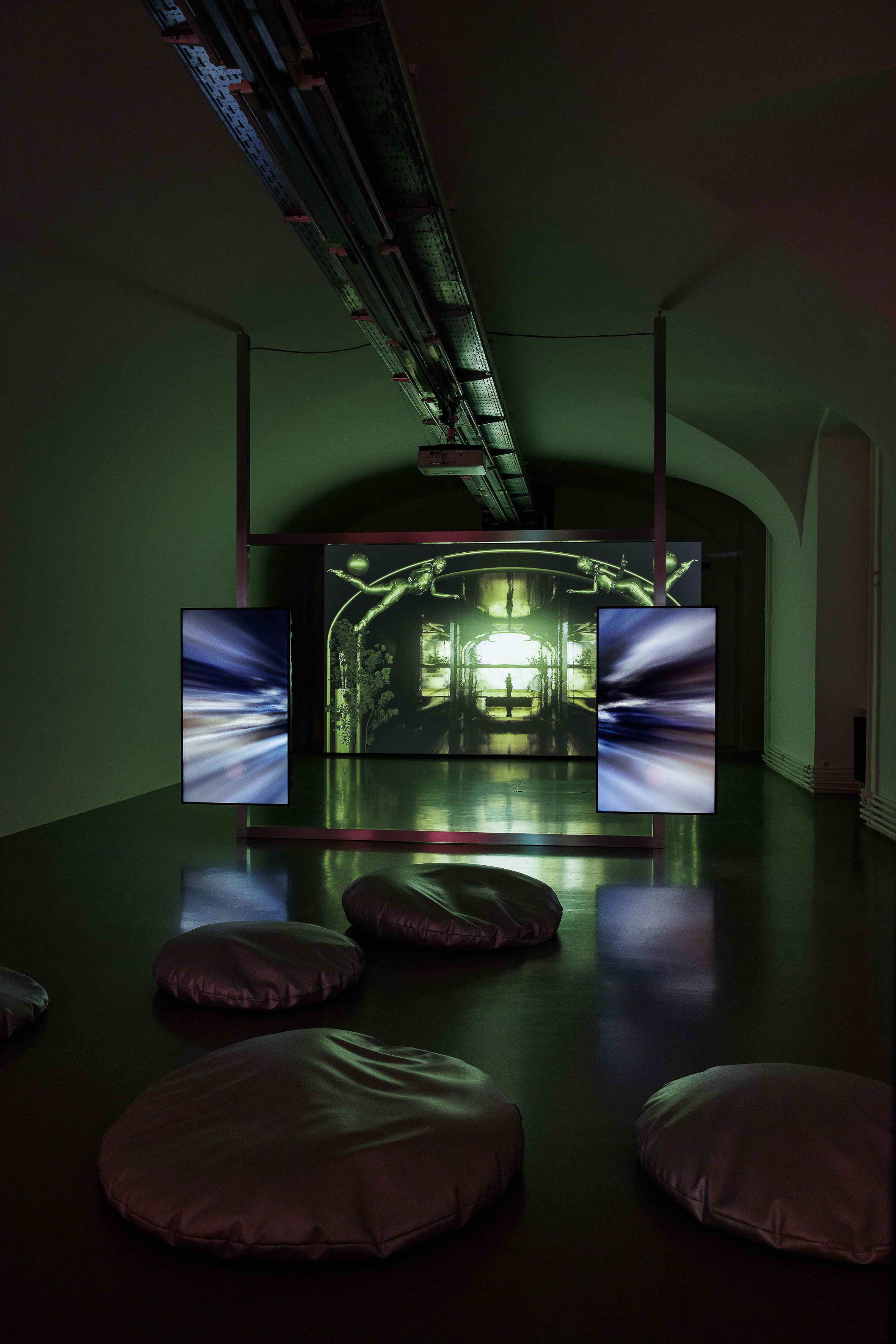










Titled Pardon Our Dust, the MAK is presenting the first solo exhibition by La Turbo Avedon in Austria. La Turbo Avedon, a non-binary artist and curator [pronouns they/them], exclusively performs as an avatar in the virtual world. For the MAK, La Turbo Avedon developed a new virtual environment and narration as a time-based digital installation: Presented on a central large- scale projection and five synchronized screens, the avatar-self of La Turbo Avedon accompanies the visitors through different landscapes and rooms of virtual realities which are—alluding to the title of the exhibition and the development of Web3—in a constant state of construction and deconstruction.
La Turbo Avedon purposefully ignores the lack of real physicality and gender attributions and instead emphasizes the potentials of non-physical and fluid identities. Not only identity is in the focus of La Turbo Avedon’s work but also the critical exploration of the internet as a medium and the technological changes of the new Web3 generation.
As an artist, La Turbo Avedon was “born” in 2008/09 in the metaverse of the collective online computer game Second Life. Since then, La Turbo Avedon has been living and working in the form of the self-created persona on the internet and produces digital installations, simulations, digital sculptures, photographs, videos, and performances there while also running virtual art spaces like Club Rothko and Panther Modern. ”In the mid-2000s we realized the fictions of cyberspace on the consumer level and that was when I was finally able to join in as an artist,” La Turbo Avedon states.
The extensive queer and subcultural history of the new media and the beginnings of the internet are a repeating theme for La Turbo Avedon regarding the creation of own identities as well as the exploration of virtual realities and of Massively Multiplayer Online Games in computer game environments. Concerning aesthetics, La Turbo Avedon borrows from video game environments from role games like Fortnite, Minecraft, Dark Souls ,Diablo, Overwatch, or Final Fantasy. Around 1995, La Turbo Avedon began creating the first players for the Super Nintendo computer game Chrono Trigger. Virtual identities on early versions of social media, MySpace, and Facebook followed.
For the exhibition at the MAK, La Turbo Avedon developed the fictional worl Pardon Our Dust, a new work developing a narration told from the perspectiv of the avatar in the form of an endlessly looped simulation. The 3D content and environments rich in detail were generated and rendered by a unique
software engine.
The simulation begins and ends at a flooded petrol station with the sign “Lethe.” The name is linked to the mythological river Lethe: Its name means oblivion also in the sense of concealment. According to the Greek mythology, drinkers of the Lethe’s water would lose their memories before entering the realm of the dead in order to forget everything that was and be able to be reborn.
While the story line develops on the central projection, the vertical screens show different surveillance perspectives of the avatar, unfolding their monologue. The image sequences move through several seemingly abandoned virtual environments while the avatar-self runs through different construction attempts of the metaverse and Web3 and reflects on their purpose. Various interactions with water structure the complex narration.
A machine learning algorithm finally takes over control of the rendered image sequences: The abstract images are reminiscent of digital paintings and eventually merge to a timeless virtual space with the brand messages such as “Land Sale,” “Exclusive,” and “Drop.” Time and again they reflect each other until the focus is shifted to a shimmering light in the distance: “Lethe.” The flooded petrol station reappears and the loop ends.
La Turbo Avedon assumes a critical position towards the alleged decentralization of the internet, privatization in the digital space, and the commercial and colonialist heritage of the physical world propagated by the crypto community. “Land Sale” alludes to real estate speculation in the metaverse and the privatization of online property by global corporations and private investors. “Exclusive” and “Drop” quote the technical jargon of the crypto community announcing NFT (Non-Fungible Token) sales.
The title Pardon Our Dust refers to the development of the internet in the 1990s when this slogan was used for websites under construction. “This idea of a digital construction site in some ways had a gentle touch. In 2022, the atmosphere is totally different. With Web3, metaverse, and crypto currencies, a massive shift is taking place in the virtual worlds. Everything is being turned upside down,” La Turbo Avedon comments on the current project at the MAK.
During the time-based installation, the vertical screens resemble fortune-telling machines—an animated variant of La Turbo Avedon looking back at the viewers from inside. Rather than offering viewers their fate or predictions of tomorrow, the screens ask the viewers to leave flowers. The avatar beckons guests for “a flower left, forever more,” seeking an intermediary space of contemplation between the virtual and the physical.
La Turbo Avedon sees the creative potential of the avatar in exploring the relationship between users and virtual experiences, which is becoming eve more intense, and in building creative environments that can enhance the meaning of the memories made in cyberspace. With Pardon Our Dust, La
Turbo Avedon presents a perspective that focuses on a new, critical reflection of this development for communities and open digital spaces.
[Text: Marlies Wirth]
©YYYYMMDD All content and design by Daniela Grabosch + Ricardo Almeida Roque unless otherwise stated. Images, Videos and Texts can only be used under permission of the author(s).